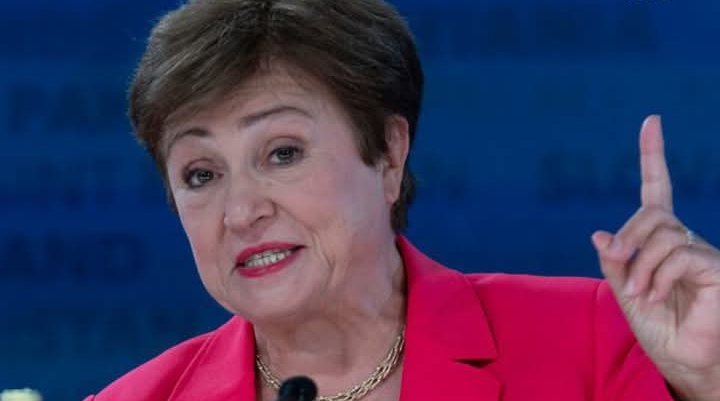
By Adeyemi Adekunle
The International Monetary Fund (IMF) has issued a stark warning that President Donald Trump’s newly announced tariffs could severely destabilize the global economy, particularly during a period of already sluggish growth.
IMF Managing Director Kristalina Georgieva emphasized the urgency for the U.S. and its trading partners to de-escalate trade tensions and avoid actions that could further harm the worldwide economic landscape.
President Trump’s tariff plan includes a universal 10% levy on nearly all U.S. imports, with targeted tariffs reaching up to 50% on specific countries, notably China and members of the European Union. The administration asserts that these measures are designed to invigorate domestic manufacturing and safeguard American jobs.
However, the immediate market response has been overwhelmingly negative. Wall Street experienced a staggering $2.5 trillion loss in market value, with the S&P 500 dropping 4.8% and the Nasdaq falling 6%, marking their worst performances since the 2020 coronavirus-induced downturn.
The repercussions extended globally, triggering significant declines across Asian and European markets. Major indices in Japan, South Korea, the UK, France, Germany, and Australia all recorded substantial losses. In the energy sector, Brent crude prices plummeted to their lowest levels since December 2021.
In response to the escalating trade tensions, the UK government has initiated urgent negotiations with the U.S. and is contemplating retaliatory measures to protect its economic interests. Prime Minister Keir Starmer emphasized the importance of maintaining open trade channels and expressed concern over the potential for a full-scale trade war.
The IMF is currently assessing the broader macroeconomic implications of the new tariffs and plans to provide a comprehensive analysis during its upcoming meetings in Washington, D.C., scheduled for April 21-26.
Georgieva has previously indicates that while the tariffs are undermining confidence and increasing uncertainty, a near-term global recession is not anticipated. Nevertheless, she acknowledged that the IMF might slightly downgrade its economic outlook due to these recent trade developments.
As the situation unfolds, the international community remains on high alert, closely monitoring the potential for retaliatory measures and the broader impact on global trade dynamics. The IMF continues to advocate for constructive dialogue and cooperative solutions to prevent further economic destabilization.



